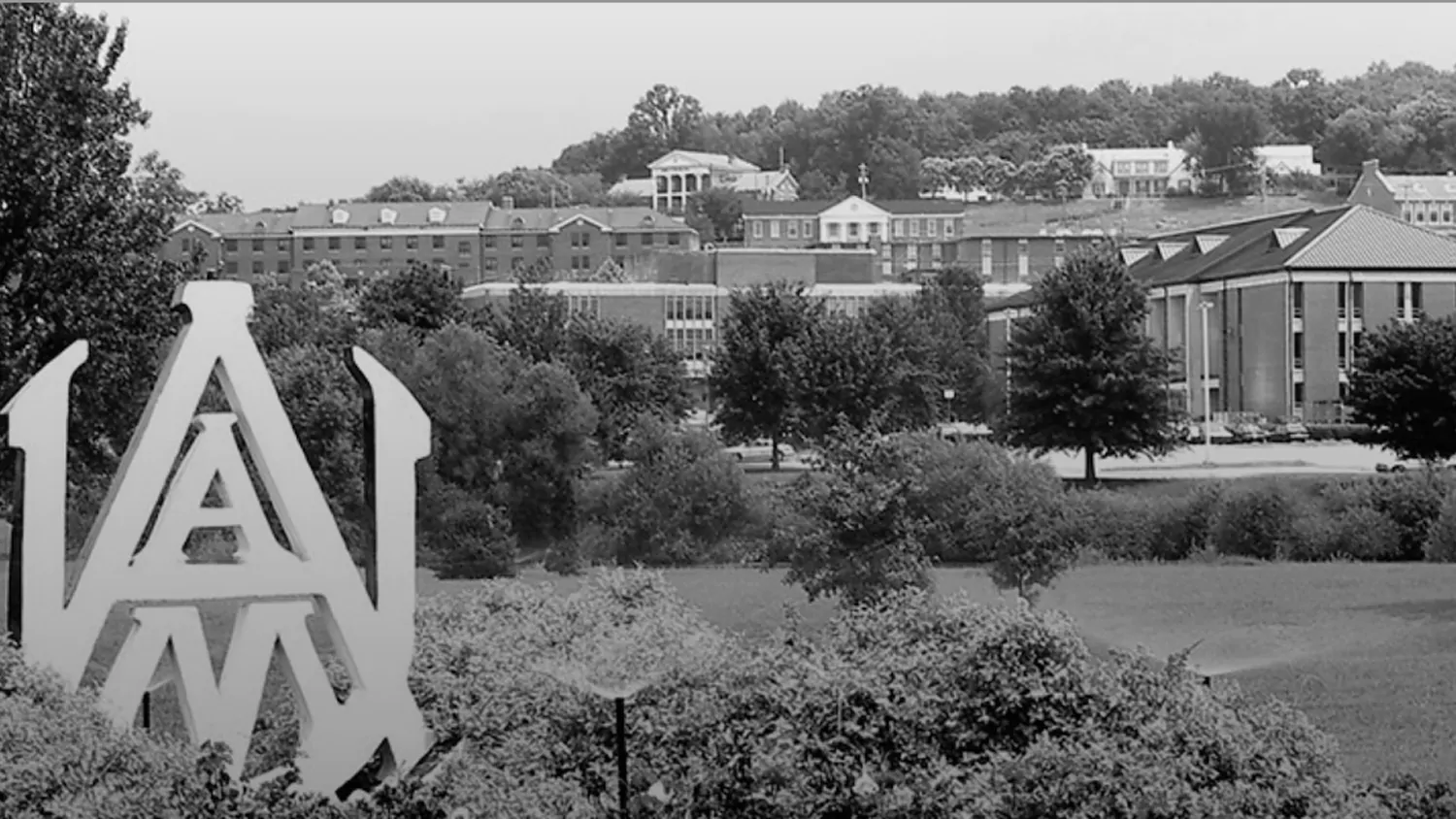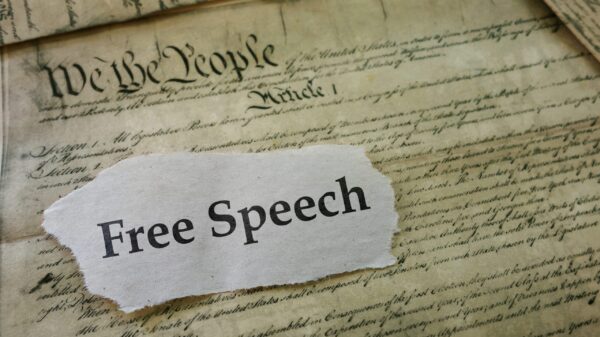The search for Alabama A&M’s 12th president has created a rift between university officials and some alumni, who feel the process has been rigged to give a preferred candidate a better chance, and has resulted in allegations of sexual harassment and other misconduct bubbling to the surface.
The A&M board of trustees will meet Friday at 8 a.m. to begin the formal interviews of its three finalists for the job — Dr. Daniel Wims, Dr. Roderick Smothers and Dr. Colette Pierce Burnette. But the process that led to this point, which included cutting 53 applicants down to three finalists in a matter of four weeks, has drawn heavy criticism from some alumni.
One group, frustrated by what they deemed “a lack of transparency and openness,” sent a letter to Gov. Kay Ivey, who is the board president by virtue of her office, asking that she audit the search process and intervene if necessary.
University officials, however, have defended the process as transparent and appropriate. Board chairman Dr. Jerome Williams said that search committee had clear criteria that was followed, and that while much of the work was done in private — as is typically the case in such searches — no one person or group had undue influence over it.
Outgoing A&M president Andrew Hugine penned a strongly-worded letter to university stakeholders on Wednesday, asking “who does Alabama A&M belong to” and making the case that “some alumni” believe the university belongs to them. It was a message clearly directed at the group raising objections to the process.
If the intent of the letter was to ease tensions and soothe fears that the process is rigged, it seemed to have the opposite effect. The letter only heightened the belief that Wims, who currently serves as provost at A&M, was being protected by university officials, and was being pushed for the job.
It fit a long-standing pattern, according to some current and former A&M faculty members who have accused Wims of various misdeeds. Over the past two weeks, APR has spoken to nearly two dozen current and former A&M employees, including three women and one man who accused Wims of inappropriate conduct and two former employees who corroborated the allegations. Several other employees spoke generally about the environment on campus, as it related to Wims and the allegations against him.
APR attempted repeatedly to speak to Wims about the specific allegations. An APR reporter held multiple conversations with university officials, a university-hired PR firm and an attorney representing the board of trustees about the specific allegations.
Wims declined to be interviewed, but he released a statement in which he acknowledged awareness of “allegations suggesting prior inappropriate conduct” but denied those allegations.
“Alabama A&M University is an outstanding institution of higher learning dedicated to providing quality education to its students, and I am extremely proud to have been a part of its growth and success during my tenure,” Wims wrote. “Even further I am excited about the bright future ahead and a continued opportunity to serve the university, its students, and our community. As a candidate to fill the president’s position, I have been transparent and cooperative with the university during the entire search process, including the many background inquiries.
“Nevertheless, I am aware that allegations suggesting prior inappropriate conduct have been made about me since I was announced as a finalist for the president’s position. I also understand that these allegations have been brought to your attention and you have inquired about them. These allegations are baseless, and I categorically and unequivocally deny them. Meanwhile, I intend to stay focused on pursuing my passion, which is excellence in education at Alabama A&M University.”
The allegations against Wims, several university employees told APR, are not exactly breaking news on the campus. Details of the allegations were contained in letters written by some alumni and sent to trustees and search committee members. Those letters were subsequently shared on social media and with various members of the media.
Williams and university attorney Rod Steakley told APR that as part of the search process, A&M officials reviewed human resources records and inquired about alleged reports of incidents involving Wims. They found none.
“There are absolutely no records of this,” Steakley said.
However, APR was provided a formal grievance filed by a longtime professor at A&M and was allowed to view another grievance filed by a separate faculty member about Wims. Filing a formal grievance is the first step for employees at A&M in addressing inappropriate behavior by a co-worker or supervisor.
One of those grievances was filed by Dr. Larry McDaniel, the longest serving professor in A&M’s business school. That grievance was filed in 2019 and included allegations by McDaniel that Wims demanded a quid pro quo of some undisclosed nature before he — as provost — would address a problem McDaniel had with a dean.
McDaniel said he had been unfairly removed as chair of the department after he raised concerns about a possible inappropriate relationship between the dean and a student. In an attempt to rectify the situation, McDaniel said he went to Wims, who, as provost, would have been the appropriate person to handle the matter.
“He just looked at me and said, ‘well, if I handle your problem, what do I get out of it? What will you do for me?’” McDaniel said. “I said, ‘I expect you to do your job as provost and act professionally.’”
McDaniel, who has a doctorate in human resources from the University of Alabama, said he meticulously followed the A&M handbook for addressing his grievance with both the dean and Wims. He filed his formal grievance with HR and later, when it became apparent that his concerns would not be addressed, he notified Hugine of the incident and asked for his help.
Now, McDaniel said he has retained an attorney and he notified trustees on Thursday of his issues and his intent to file a lawsuit.
“I don’t want to do this — I simply want what happened to me to be addressed and rectified,” McDaniel said. “I started many times to just let this go and move on. But I can’t, because it’s not right. I’m comfortable. They can’t do anything to me. So I owe it to the other people on the campus to stand up for what’s right.”
McDaniel was not the only one to take a complaint about Wims to Hugine.
Dr. Angel Dunlap, who headed up A&M’s Title IX department, said she dealt with Wims’ “inappropriate behavior” for months before finally going to Hugine to complain. She said she told the president that she had been held back by Wims, and she believed it was because she rebuffed his advances.
Dunlap said Hugine told her that he’d “look into” her allegations. She said he never got back to her.
“I just really felt defeated after dealing with him for so long and not getting any help with this,” Dunlap said. “I ultimately resigned as a faculty member and took a staff position just so I wouldn’t be under him anymore.”
Dunlap said she was later terminated from A&M while she was on medical leave — an action she believes was retaliation for reporting Wims.
In addition to Dunlap and McDaniel, two other former A&M faculty members told APR that they filed formal grievances with HR about inappropriate comments made by Wims and reported his behavior to supervisors.
One current A&M employee and one former employee, who each were in positions to review formal grievances and who spoke to APR on condition of anonymity, said they were aware of the grievances filed by the former employees.
Additionally, mentions of the formal grievances have been contained in letters sent by alumni groups to the search committee and shared in a variety of forums online.
University officials are adamant that there is no record of those grievances, nor is there a record of Wims being disciplined or going through an investigation.






















































